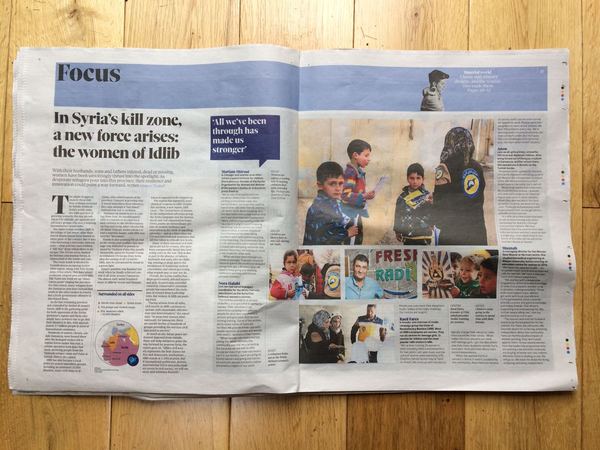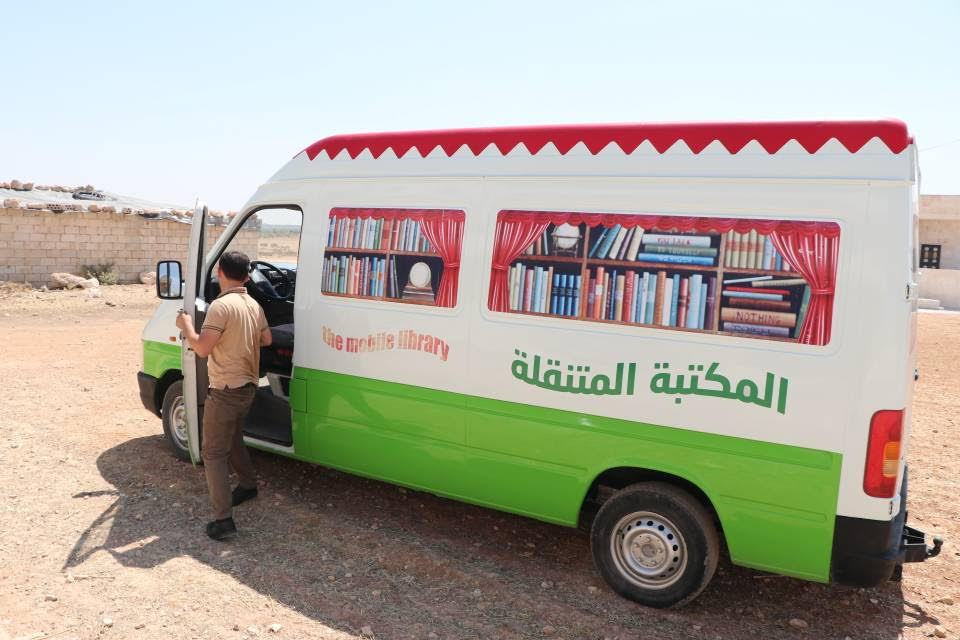Idlib Lives
Since 2011, there has been tremendous growth in civil society across Syria. People have come together to form groups and organisations addressing every issue imaginable, from human rights to women’s rights to community development, and much more. We have always tried to tell stories of their work because we passionately believe in what they do. In the words of the activist Raed Fares:
“The only way to create a new Syria is through civil society. There’s no other way. It can’t happen through weapons, it can’t happen through realities that others are trying to impose. What will get us to the Syria we dream of is the collective power of civil society through their different work and visions.”
Raed Fares
We also believe that it is important to add another dimension to much of the media coverage of Syria, which tends to focus on political developments, military operations, and the impact of the fighting on people. Of course, this coverage is extremely important, but there is a danger that Syrians are being portrayed only as perpetrators or victims of violence. Syrian civil society groups are full of brave and brilliant people. By highlighting their work, we can challenge the idea that Syria is in a hopeless conflict. If we want people to take action, we have to give them a sense of hope, and there is no better way to do this than by showing the work of Syrian civil society groups.
In 2018, the conflict began escalating in Idlib, northwest Syria. The growth of the extremist group Hayat Tahrir al-Sham (HTS) in this part of the country posed a grave threat to civil society, as HTS was known to restrict, arrest or even kill civil society actors. Furthermore – the group’s presence in Idlib was a useful pretext for the Syrian regime to attack the area.
Despite the presence of HTS, a large number of inspiring civil society groups were continuing to operate in Idlib. We wanted to highlight their work to show that a large majority of the population rejected the extremism of both HTS and the Syrian regime, and that, despite the grave challenges, the people of Idlib still deserved international protection and support.

We partnered with the peacebuilding organisation Peace Direct to interview and profile a large number of civil society groups across Idlib. Based on what these groups told us about their work, we wrote an online report that told their stories and also made recommendations for what the international community should do to support them. The report and stories were picked up by some publications, including The Guardian, altering the media coverage of Idlib.
In addition to the report, we also undertook other activities to support and highlight the work of the civil society in Idlib. This included arranging for Raed Fares to travel to the United States to speak about the work of his pioneering radio station, Radio Fresh and a fundraising drive for Hurras, the educational charity. We have also continued to update the Idlib Lives website with stories of civil society in Idlib.

What we learnt
If you can find the right stories, the media will cover the work of the civil society. This can present a different side of what is going on in a conflict or crisis and provide a sense of hope.